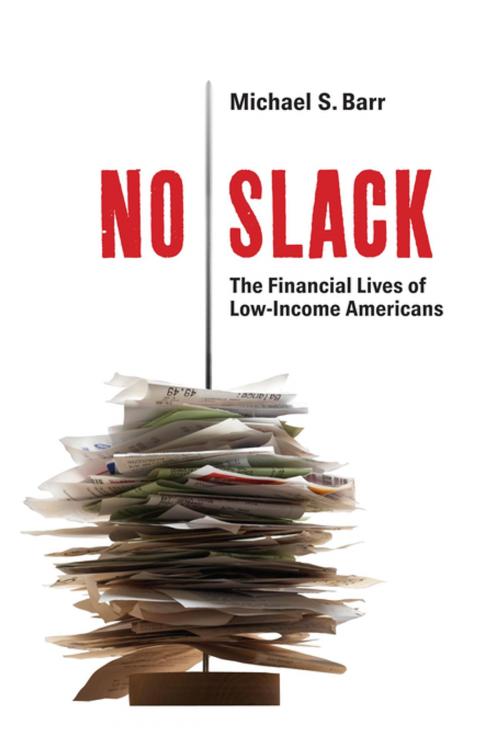No Slack
The Financial Lives of Low-Income Americans
Nonfiction, Social & Cultural Studies, Political Science, Government, Social Policy, Social Science, Sociology, Urban, Business & Finance, Personal Finance| Author: | Michael S. Barr | ISBN: | 9780815722342 |
| Publisher: | Brookings Institution Press | Publication: | March 29, 2012 |
| Imprint: | Brookings Institution Press | Language: | English |
| Author: | Michael S. Barr |
| ISBN: | 9780815722342 |
| Publisher: | Brookings Institution Press |
| Publication: | March 29, 2012 |
| Imprint: | Brookings Institution Press |
| Language: | English |
The financial crisis exposed the potentially unsavory results of the interaction between low- and moderate income households and alternative and mainstream financial institutions. Many households were overleveraged or paid high costs for financial services, while others lacked access to useful financial products that can cushion against economic instability. The financial services system is not well designed to serve low- and moderate-income households, leaving them without financial slack: they did not have adequate breathing room for making the financial adjustments that would permit them to better meet their own needs. No Slack shows us why these families were the least prepared to handle the shock of the deep recession.
This pivotal analysis focuses on the Detroit metropolitan area's low- and moderate-income neighborhoods, which are similar to those of other Rust Belt communities. The Detroit Area Household Financial Services study-conducted at the height of the subprime lending boom-examines these households' decisionmaking processes, behaviors, and attitudes toward a full range of financial transactions.
No Slack reveals widespread problems in home mortgage lending, the common threads among people who file for bankruptcy, the reasons so many households are unbanked, and how behaviorally informed financial regulation can make the market work better. Drawing on his deep policy experience, Michael Barr advocates helping families seek financial stability in three primary ways: enhancing individuals' financial capability, using technology to promote access to financial products and services that meet their needs, and establishing strong protections for consumers.
The financial crisis exposed the potentially unsavory results of the interaction between low- and moderate income households and alternative and mainstream financial institutions. Many households were overleveraged or paid high costs for financial services, while others lacked access to useful financial products that can cushion against economic instability. The financial services system is not well designed to serve low- and moderate-income households, leaving them without financial slack: they did not have adequate breathing room for making the financial adjustments that would permit them to better meet their own needs. No Slack shows us why these families were the least prepared to handle the shock of the deep recession.
This pivotal analysis focuses on the Detroit metropolitan area's low- and moderate-income neighborhoods, which are similar to those of other Rust Belt communities. The Detroit Area Household Financial Services study-conducted at the height of the subprime lending boom-examines these households' decisionmaking processes, behaviors, and attitudes toward a full range of financial transactions.
No Slack reveals widespread problems in home mortgage lending, the common threads among people who file for bankruptcy, the reasons so many households are unbanked, and how behaviorally informed financial regulation can make the market work better. Drawing on his deep policy experience, Michael Barr advocates helping families seek financial stability in three primary ways: enhancing individuals' financial capability, using technology to promote access to financial products and services that meet their needs, and establishing strong protections for consumers.















